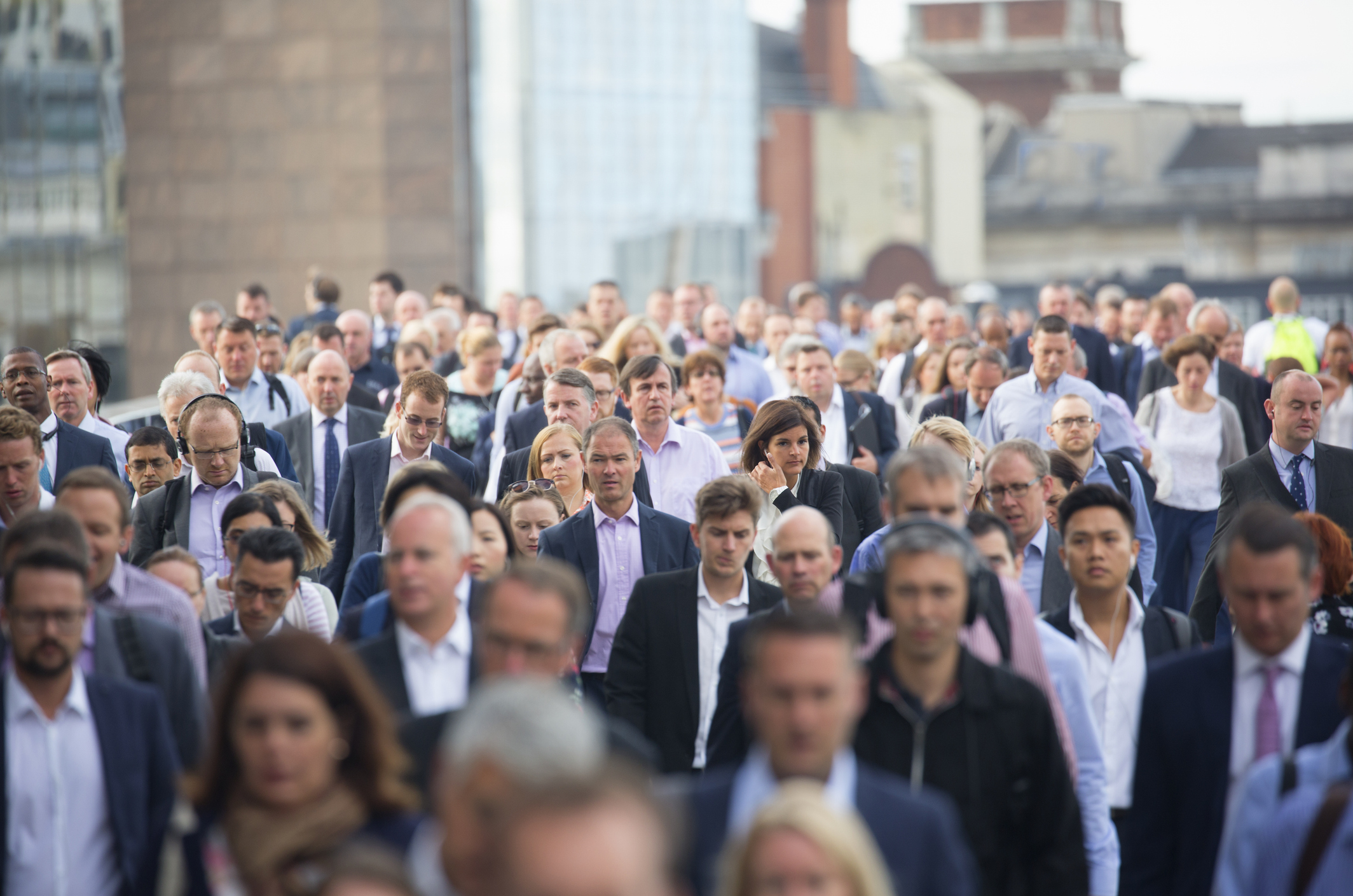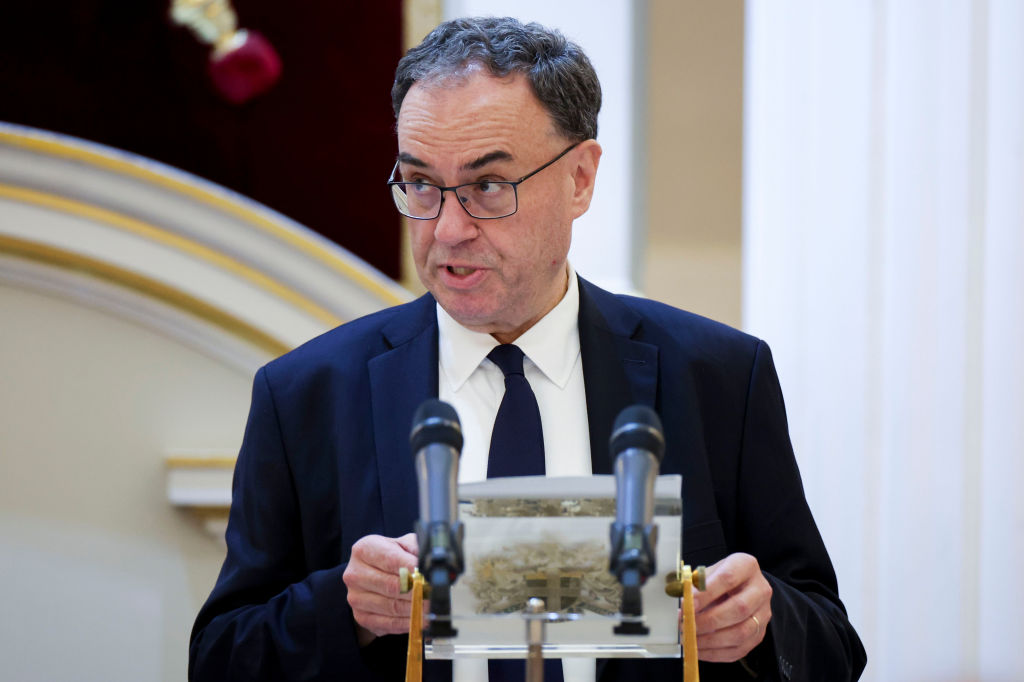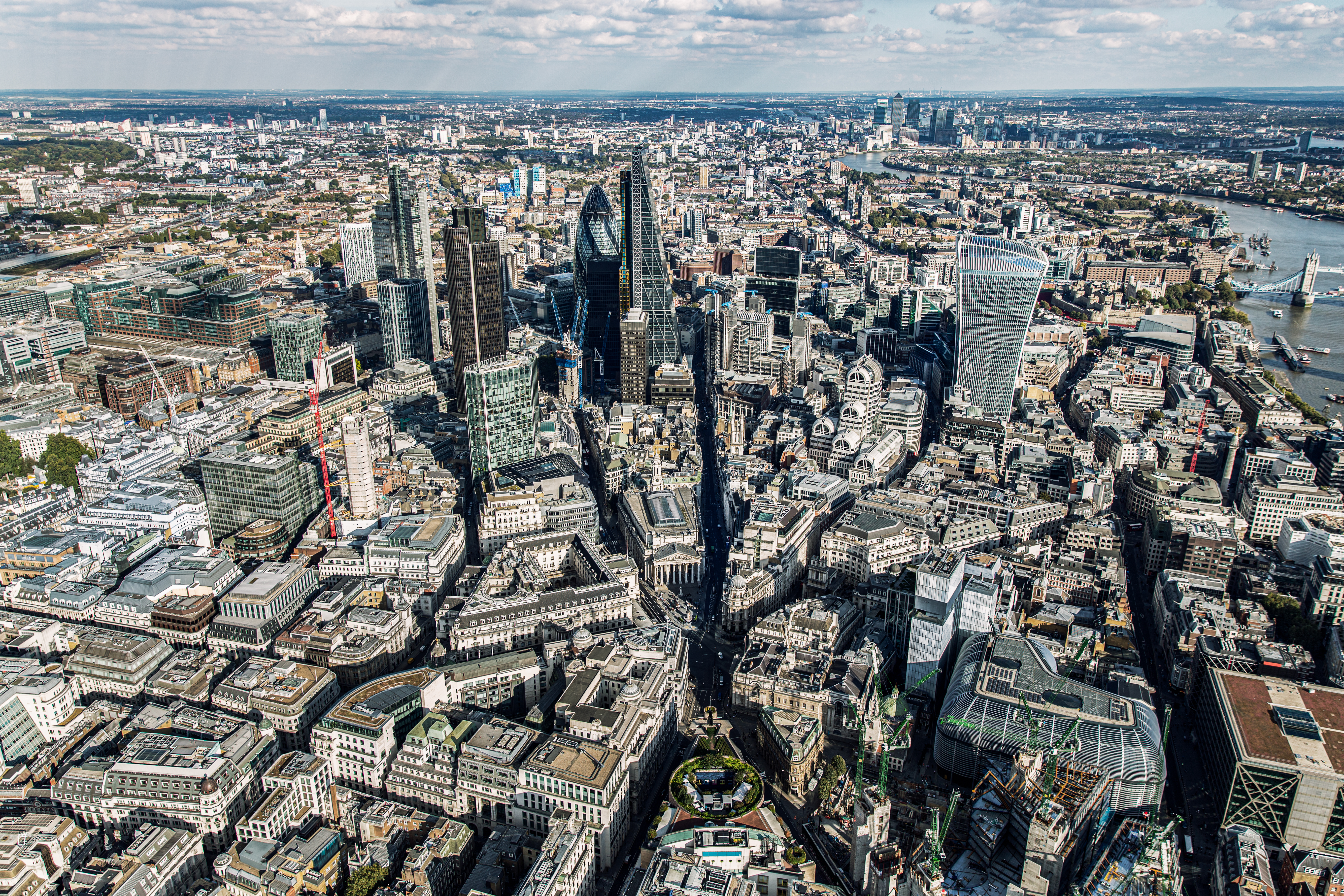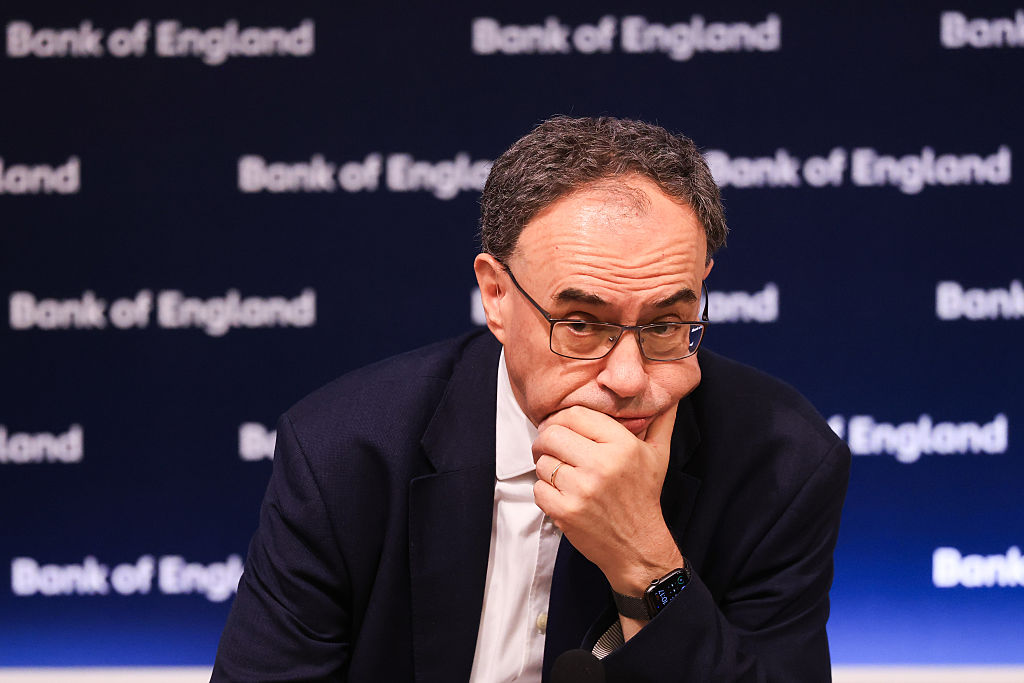UK economy avoids stagnation with surprise growth
Gross domestic product increased by 0.2% in the second quarter and by 0.5% in June


Get the latest financial news, insights and expert analysis from our award-winning MoneyWeek team, to help you understand what really matters when it comes to your finances.
You are now subscribed
Your newsletter sign-up was successful
Want to add more newsletters?
The UK economy grew slightly in the three months to June, boosted by a recovery in car manufacturing and strong consumer spending.
Gross domestic product (GDP) increased by 0.2% in the second quarter, according to the Office for National Statistics (ONS), beating economists’ forecasts for zero growth. In the first quarter, GDP ticked up by 0.1%.
“GDP grew a little, with widespread growth across manufacturing — aided by falling raw material prices — computer programming and hospitality,” says ONS director of economic statistics Darren Morgan.
Try 6 free issues of MoneyWeek today
Get unparalleled financial insight, analysis and expert opinion you can profit from.

Sign up to Money Morning
Don't miss the latest investment and personal finances news, market analysis, plus money-saving tips with our free twice-daily newsletter
Don't miss the latest investment and personal finances news, market analysis, plus money-saving tips with our free twice-daily newsletter
The services sector grew by 0.1% in the quarter, driven by increases in information and communication, accommodation and food service activities, and human health and social work activities; elsewhere, the production sector grew by 0.7%, with 1.6% growth in manufacturing.
The figures are slightly stronger than suggested by the Bank of England’s (BoE) forecast, which pencilled in a 0.1% expansion between the first and second quarters, as did independent economists.
On a monthly basis, the economy grew by 0.5% in June as businesses bounced back from the extra bank holidays for the Coronation in May.
"Services also had a strong month with publishing and car sales and legal services all doing well, though this was partially offset by falls in health, which was hit by further strike action," Morgan says.
"Construction also grew strongly, as did pubs and restaurants, with both aided by the hot weather,” he adds.
Will the BoE raise interest rates?
The BoE has said that while it no longer expected the economy to fall into recession, it would remain near stagnation for the next two years. It recently hiked interest rates for the 14th time in a row to 5.25% as it attempts to bring down inflation.
The rate of inflation fell faster than expected in June but remains high at 7.9%.
The growth of 0.2% recorded in the last quarter is “a far cry” from the significant recession that seemed likely at the start of this year, says Thomas Pugh, economist at audit, tax and consulting firm RSM UK.
“We think the economy will avoid a recession, but only just,” he adds.
However, consultancy Capital Economics is sticking with its forecast that the UK is heading for a mild recession later this year.
“Overall, the bank holiday, unusually warm weather and strikes make it hard to judge the true health of the economy. But our sense is that underlying activity is still growing, albeit at a snail’s pace. We still think that with most of the drag from higher interest rates still to come, GDP will fall in Q3 and a mild recession will begin,” Ruth Gregory, deputy chief UK economist says.
“That may not prevent the Bank from raising interest rates from 5.25% now to 5.50% in September. But it may mean that rates don’t rise as far as the 5.75-6.00% envisaged by the consensus and investors,” she adds.
Money markets still think it is likely the BoE will raise interest rates at its next meeting in September, despite the unexpectedly strong growth in the UK economy.
“The better-than-expected GDP figures are likely to galvanise the BoE’s zeal to continue to raise interest rates,” says David Baker, a partner at Mazars.
“The Bank will remain very concerned about the persistence of inflation and will reflect on near full employment and high wage inflation as reasons to keep policy tight,” he adds.
Chancellor Jeremy Hunt says the actions the government has been taking to fight inflation "are starting to take effect, which means we are laying the strong foundations needed to grow the economy".
He adds: "The BoE is now forecasting that we will avoid recession, and if we stick to our plan to help people not work and boost business investment, the IMF have said over the longer-term, we will grow faster than Germany, France and Italy."
The UK is the only major advanced economy yet to have met pre-Covid levels of late-2019, the data shows. It is now 0.2% below that level as of the end of June. That's compared with 0.2% above for Germany, 1.7% for France, 2.2% for Italy and 6.2% for the United States.
What does this mean for you?
The UK economy might be growing, but that does not mean the cost-of-living crisis will simply go away.
The figures show the UK has dodged recession, which is when GDP contracts for two quarters in a row, but the outlook remains gloomy for families and businesses.
Signs of trouble can be found in the softening labour market, with unemployment edging up to 4%, while company insolvencies are also on the rise, putting more jobs at risk.
“Rents are soaring while the number of mortgage holders in arrears on their repayments rose in the second quarter of the year, as higher mortgage rates and persistent cost-of-living challenges added further pressure to household budgets already at breaking point,” says Alice Haine, personal finance analyst at Bestinvest.
“With the Bank of England widely expected to push ahead with another rate rise at its next meeting in September, this will only heighten the pain for borrowers already contending with rising repayment levels.”
The outlook for consumer spending and economic activity in the third quarter is likely to be more uncertain – despite petrol prices having come off their highs – as the impact of elevated interest rates starts to bite. Interest rates in the UK are currently at their highest level in over 15 years, warns Michael Hewson, chief market analyst at CMC Markets UK.
"With more and more fixed rate mortgages set to get refinanced in the coming months the second half of the year for the UK economy could well be a lot more challenging than the first half," he says.
The average 2-year fixed residential mortgage rate is currently at 6.80%, according to data provider Moneyfacts. The average 5-year fixed residential mortgage rate stands at 6.28%.
“Conditions are likely to get worse from here as higher interest rates take full effect, wages slow and the jobs market weakens. These things may be necessary in the fight against persistent inflation but it means there’s more uncertainty to come for households,” Ed Monk, associate director for Personal Investing at Fidelity International, says.
Join us at the MoneyWeek Summit on 29.09.2023 at etc.venues St Paul's, London.
Tickets are on sale at www.moneyweeksummit.com
MoneyWeek subscribers receive a 25% discount.
Get the latest financial news, insights and expert analysis from our award-winning MoneyWeek team, to help you understand what really matters when it comes to your finances.

Pedro Gonçalves is a finance reporter with experience covering investment, banks, fintech and wealth management. He has previously worked for Yahoo Finance UK, Investment Week, and national news publications in Portugal.
-
 Why investors can no longer trust traditional statistical indicators
Why investors can no longer trust traditional statistical indicatorsOpinion The statistical indicators and data investors have relied on for decades are no longer fit for purpose. It's time to move on, says Helen Thomas
-
 Unemployment remains at five-year high as wage growth continues to slow
Unemployment remains at five-year high as wage growth continues to slowUnemployment in the UK held at 5.1% in the three months to November as wage growth fell again month-on-month.
-
 Is the Office for National Statistics fit for purpose?
Is the Office for National Statistics fit for purpose?Britain’s statistics authority, the Office for National Statistics, is increasingly unfit for purpose. Why, and what can be done?
-
 UK inflation forecast: where are prices heading next?
UK inflation forecast: where are prices heading next?UK inflation fell sharply in January. Is price growth expected to fall further in 2026, and when will inflation go back to the 2% target?
-
 Uncertainty ahead of the Budget causes house price growth to stall, says Rightmove
Uncertainty ahead of the Budget causes house price growth to stall, says RightmoveProperty website Rightmove says asking prices increased by just 0.3% in October, well below the 1.3% average for the month
-
 ONS: UK economy grew by ‘lacklustre’ 0.1% in final quarter of 2025
ONS: UK economy grew by ‘lacklustre’ 0.1% in final quarter of 2025The construction sector performed its worst in more than four years in the final quarter of 2025, the latest Office for National Statistics (ONS) GDP figures show
-
 UK inflation: What are the Consumer Price Index release dates?
UK inflation: What are the Consumer Price Index release dates?The UK’s inflation reports are published monthly. When do they come out and where are prices heading?
-
 When is the next Bank of England base rate meeting?
When is the next Bank of England base rate meeting?The Bank of England held interest rates at 3.75% in February 2026. When is the next Monetary Policy Committee meeting and will interest rates fall further this year?

